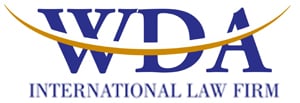By Brent Kendall, Of DOW JONES NEWSWIRES
WASHINGTON -(Dow Jones)- The U.S. Supreme Court on Wednesday voiced conflicting concerns about whether it should restrict patents for medical- diagnostic tests, a key issue in the field of personalized medicine.
During an hourlong oral argument, the court considered the validity of two Prometheus Laboratories Inc. patents for a test that helps doctors set drug dosages for patients with Crohn’s disease.
The Mayo Clinic, which wants to offer a competing test, is challenging the Prometheus patents, arguing they improperly seek to claim the exclusive right to observe the human body’s natural response to treatment.
The stakes are high. Medical groups say patents like Prometheus’s could impede the practice of medicine and raise the costs of medical treatment. But biotechnology and drug companies such as Roche Holding AG (RHHBY, ROG.VX) and Abbott Laboratories (ABT) said the patents are essential to protecting their investments in medical innovations.
Federal law allows patents on a very broad range of new inventions, but there are a few exceptions. Laws of nature, physical phenomena and abstract ideas aren’t patentable. The issue in the case is whether the Prometheus patents run afoul of these prohibitions. The Supreme Court at times appeared to struggle with how to distinguish patents on laws of nature, which are prohibited, from patents that apply the laws of nature, which are allowable.
“Doesn’t any medical patent rely on natural processes?” Justice Antonin Scalia asked. “I mean, even if you invent a new drug, what that new drug does is natural. It affects the human physiognomy in a certain natural way.”
Justice Stephen Breyer expressed concern about the patents, but he also noted the investments that companies have made. “Discovering natural laws is often a very expensive process,” he said.
In a 2006 dissenting opinion, Breyer questioned the validity of some medical diagnostic-test patents, but he said Wednesday that his earlier opinion didn’t answer certain tough questions.
Breyer’s participation in the case was in doubt in the hours leading up to the argument. Prometheus put Breyer in an unexpected bind late Tuesday when it belatedly disclosed to the court that Nestle S.A. (NSRGY, NESN.VX) was its new corporate owner. Breyer’s family held shares of stock in Nestle S.A., a financial conflict that would have forced him to recuse himself. Just minutes before the oral argument began, the court announced that Breyer’s wife had sold the family stock Wednesday, thus allowing her husband to take the bench for the case.
Prometheus lawyer Richard Bress said the Supreme Court has never suggested that there are extra legal limitations that prevent patents on developing new information. He argued that the company’s patents don’t claim laws of nature, but instead protect new methods that allow doctors to analyze a patient’s blood to determine if a drug dose is too low and ineffective, or too high and potentially toxic.
“We are simply claiming the fact that we found,” Bress said.
Justice Samuel Alito immediately jumped in with an objection. “And that’s a natural phenomenon,” he said. Justice Elena Kagan, noting the concerns of Prometheus’s critics, said, “All you have done is pointed out a set of facts that exist in the world.”
Mayo lawyer Stephen Shapiro said the court should invalidate the patents to ” protect the storehouse of information that doctors really need. They have to be able to look at the body’s reaction to injections, pills, chemotherapy, radiation; and different hospitals have to have different opinions to safeguard the health of our people.”
U.S. Solicitor General Donald Verrilli, the Obama administration’s lawyer at the high court, argued for a middle ground. “Each party in this case has got a valid point,” he said.
Verrilli argued that patents for diagnostic tests should be eligible for patent protection, but said that problematic patents could be weeded out in other ways. Thousands of diagnostic test patents potentially could be affected by the court’s ruling.
The tests can help doctors set drug dosages, or determine whether an individual will benefit at all from particular drugs or medical therapies. Other screening tests identify a patient’s risk factors for certain diseases.
Among the best known are patents held by Myriad Genetics Inc. (MYGN) that allow the company to be the exclusive provider of screening tests that identify patients at risk for breast cancer and ovarian cancer. Those patents are also being challenged in court. The case is Mayo Collaborative Services v. Prometheus Laboratories Inc., 10- 1150. A ruling is expected by the end of June.
Source: nasdaq.com







